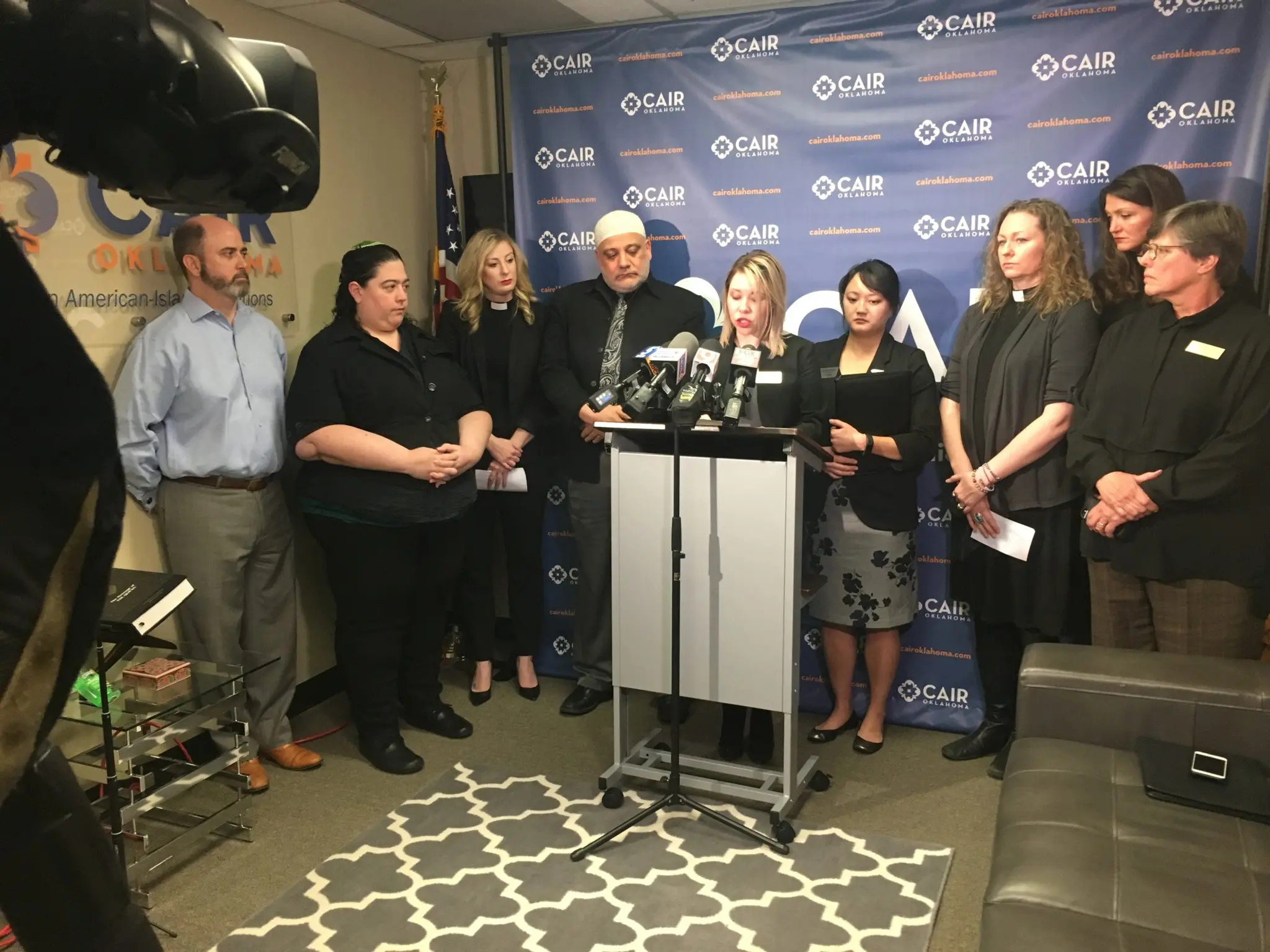The leader of a Muslim advocacy group said he could hardly sleep because he worried about the safety of Oklahoma Muslims and whether fear would keep them from their houses of worship for Friday prayer.
Adam Soltani expressed his concerns Friday at a news conference sponsored by the Council on American-Islamic Relations-Oklahoma chapter.
Soltani, the organization’s executive director, said Muslims in Oklahoma and around the world are in a heightened state of awareness and caution in the aftermath of deadly terrorist attacks at two mosques in Christchurch, New Zealand. Gunmen opened fire Friday at the Islamic houses of worship, killing 49 people and wounding at least 20 others. At least one of the suspects in custody, is a white supremacist who has espoused anti-immigrant rhetoric. He reportedly used a helmet-mounted camera to broadcast his killing spree live on Facebook.
“Unfortunately, it is perhaps our worst nightmare come true,” Soltani said.
“For many years now in Oklahoma, the United States and all around the world, Muslims have been concerned for our safety. … We are here today to show that not only are Muslims concerned but people of all faiths are concerned that an attack on one house of worship is an attack on all houses of worship.”
Soltani said his group had received calls Friday morning from Islamic centers and mosques around the state who had already connected with law enforcement in their communities to discuss increased security at mosques “today and hopefully for the next few weeks as we monitor the situation in hopes that there will be no further tragedies like this.”
Veronica Laizure, CAIR-OK’s civil rights director, said Oklahoma Muslims were being encouraged to “increase their vigilance” as they attended Jummah prayers on Friday. Jummah is the weekly congregational prayer service for Muslims that is held on Friday afternoon. It is typically the largest gathering of the week at most mosques.
She and Soltani said they were pleased with the support from law enforcement as well as CAIR-OK’s interfaith partners.
“We must remember that as we practice vigilance in watching our houses of worship and staying in communication with law enforcement officers, we must practice vigilance in our hearts, in protecting ourselves and each other from the rot that is distrust, fear and hatred,” Laizure said.
Rabbi Abby Jacobson, president of the Interfaith Alliance of Oklahoma and spiritual leader of Emanuel Synagogue, said the Jewish and interfaith communities condemn acts of terrorism and violence.
“When a mosque is threatened, when a woman is scorned for her hijab, when a man is harassed trying to board an airplane, when an American citizen is told to ‘go home,’ when criminal justice is not ‘justice for all,’ when immigrants are met with fist instead of a helping hand — we are here for you. Tell us how best we can support you, and we will do everything we can. Not just today, but every day,” Jacobson said at Friday’s news conference.
The Rev. Shannon Fleck, executive director of the Oklahoma Conference of Churches, echoed those sentiments.
“We stand alongside you sharing in your pain and shock. Acts of evil and terror will never prevail over unity and love and we vehemently and unashamedly stand in unity and love with you all,” Fleck said Friday
Meanwhile, the Most Rev. Paul S. Coakley, archbishop of the Roman Catholic Archdiocese of Oklahoma City, also denounced the mass shootings.
“The violence brought to mosques in New Zealand is unconscionable and heartbreaking. As part of an Oklahoma City community that has felt the anguish of terrorism, it is my hope that the people of Christchurch unite in a common purposeto assist one another in crisis and overcome this evil. May God bless those who have died and bring peace and healing to their families,” Coakley said in a prepared statement.Noel Jacobs, a metro-area psychologist serving as vice president of the Interfaith Alliance of Oklahoma, said the interfaith community would plan something in the future to show support for the Muslim community.
“We are not hosting support events outside the mosque to show the community today that we are with them. They know we are with them. Today is a day for them to grieve privately, to be secure in their houses of worship with the extra teams and supports that they have available to them right now.”

